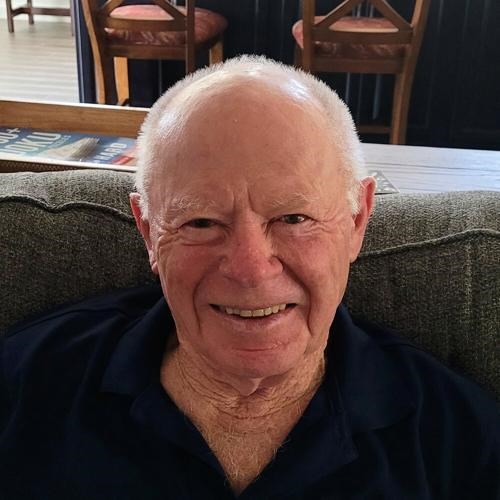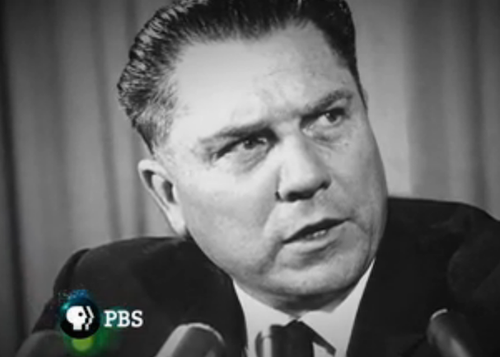By Allan Lengel
Bill Coonce, who took on the some of the most violent drug gangs as head of the Detroit DEA office in the late 1980s and early 1990s, and went on to work for an anti-narcotics program in Arizona, died Friday. He was 79.
Coonce had been battling Parkinson’s Disease and other health issues. He died peacefully under hospice care in the Tucson, Az., area with loving family around, the family said.
“He was just a once-in-a-generation leader, charismatic, intelligent, brave,” said retired DEA agent Richard Crock, who worked for Coonce in Detroit. “He’s the platinum standard for special agents in charge.”
The oldest of 12 children, the good-humored Coonce grew up in Tucson, where he attended St. Peter and Paul School, Salpointe High School and the University of Arizona.
He became a special agent with the Federal Bureau of Narcotics, which later became the Bureau of Narcotics and Dangerous Drugs, and ultimately the Drug Enforcement Administration. He worked for the agency for 29 years in a variety of cities including Seattle, Miami, Washington,D.C. and Los Angeles.
In 1985, he became one of the lead agents investigating the high-profile death of Enrique “Kiki” Camarena Salazar, a DEA agent who was abducted in Mexico by the Guadalajara drug cartel and tortured and interrogated before being killed.
From 1987 until 1993, he ran the Detroit DEA Division, which included Michigan, Ohio and Kentucky. The office investigated local, national and international drug cases.
During his reign, the office seized $5.4 million in drug money at Metro Detroit Airport, which at the time was the largest cash seizure in Michigan history. He also helped topple some of Detroit’s most dangerous drug gangs including Best Friends, the Chamber Brothers and Ed Hansard.
“He was a compassionate, good human being for starters,” said Crock. “Very down to earth, very much into supporting the agents and investigators on the task force. He was aggressive when it came to going after drug traffickers.”
“He would always do the right thing and stand up for his guys. He made the job fun for so many agents and people on the task force.”
Crock recalls in May 1989 when Rick Finley, the most popular agent in the office, was killed in Peru while working “Operation Snowcap,” which was run by the DEA, the U.S. Border Patrol Tactical Unit and military/police forces in nine Latin American countries. Finley died in a plane crash while returning from a jungle operation to a base camp in Lima.
“It was devastating for morale, and Bill held everyone together with style and grace,” Crock said. “He eulogized him like he was his own son.”
‘Him being the oldest of 12 children, he treated the DEA office like he was the big brother that kept everybody in line but was compassionate when he needed to be.”
James Huse Jr., who headed up the U.S. Secret Service office in Detroit at the same time Coonce was there, said he was “an incredibly effective leader and law enforcement executive. He was a good friend and neighbor and we lived on the same street.”
Doug Wankel, who was assistant special in charge of the Detroit DEA, echoed similar sentiments about his former boss.
“Bill came in and created a good environment,” Wankel said. “He was a leader and let people know what was expected of them. They really respected that.”
After leaving Detroit, he retired from the DEA and worked in Tucson, Az., for the Pima County Sheriff’s Office HIDTA program (High Intensity Drug Trafficking Area).
Even after leaving the DEA, Coonce cared passionately about the agency.
In 2009, he penned a column for ticklethewire.com titled: “Ex-DEA Official Says Agents Should be Insulted that Obama Admin. Would Consider FBI Official to Head DEA.”
“As a former DEA agent, I have been appalled that it has taken 7 months into this administration for Mr. Obama to finally get around to considering prospects to head the DEA,” he wrote. “To consider an Assistant U.S. Attorney or a former U.S. Attorney is the expected routine political pablum, but to consider a current FBI official is an insult to every DEA agent either on duty or retired.”
“What expertise does an FBI bureaucrat bring to the table to run an agency that has the expertise, experience and a proven track record to conduct major international drug cases?”
Coonce enjoyed golfing and traveling the globe. He and his wife enjoyed taking cruises, visiting family around the country, and spending time with grandchildren.
“His wife and daughters were his world,” Crock said.
In April 2021, the Arizona Daily Star featured a story of the Coonce family with the headline: “Family joins together 65 years after appearing in the Daily Star.”
“The Coonce family gathered together in Oro Valley on Saturday, 65 years after they were featured in a Father’s Day photo in the Arizona Daily Star on June 17, 1956. Father and mother, Bill and Anne Coonce, died in the 1990s. The family moved from Chicago in 1950. The four oldest siblings graduated from Salpointe High School. Bill lost his job and the family of 12 was forced to move to Tennessee in 1966. The siblings had productive careers in the Drug Enforcement Administration, medicine nursing, engineering, National Guard, business and construction They have a total of 21 children and 27 grandchildren.”
Coonce was preceded in death by his parents and his brother, Jeff. He is survived by his wife, Cindy; his daughters, Leighanne (Tod) Preuss and Stephanie (“Stevee”) (Jeff) Flohr; his grandchildren, Rowan Preuss, Piper Preuss and Alexandra Flohr; his siblings, John (Mildred), Tom (Jane), Jim [Susan], Dan [Pam], Marita [Andre] Lareau, Andy, Laurie [Sam] Durr, Tim [Mary], Tony, and Jerry (Kelly); as well as 7 nieces, 14 nephews, 13 grand-nieces and 14 grand-nephews.
A viewing is scheduled for Friday, March 17, from 5-8 p.m. at Adair Funeral Home Avalon Chapel, 8090 N. Northern Ave, Tucson. A funeral service is set for 10 a.m. Saturday, March 18, at St. Mark’s Catholic Church, 2727 W. Tangerine Rd, Oro Valley, Az. In lieu of flowers, donations can be made to Parkinson’s research at www.michaeljfox.org.
Tags





